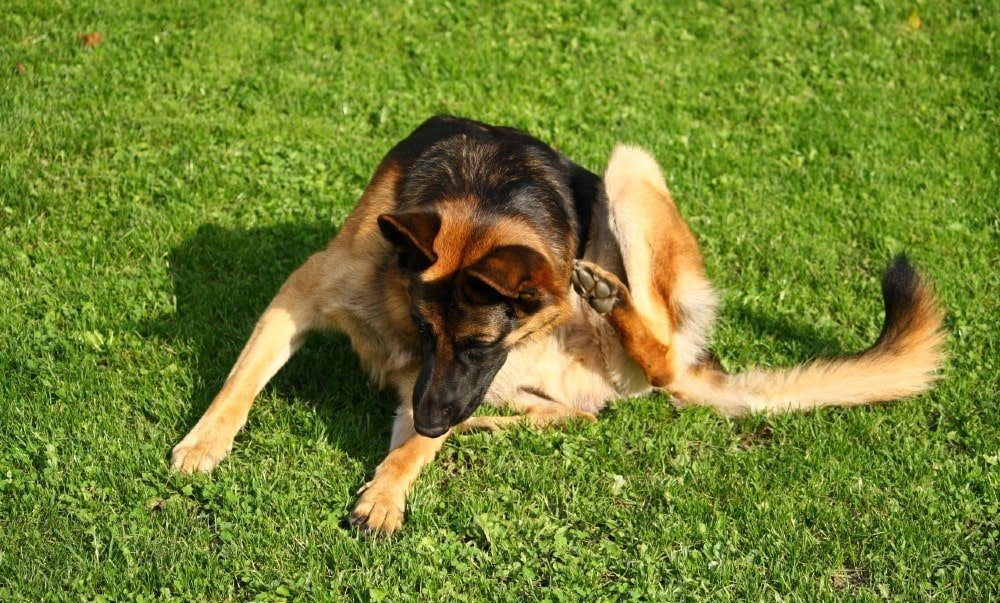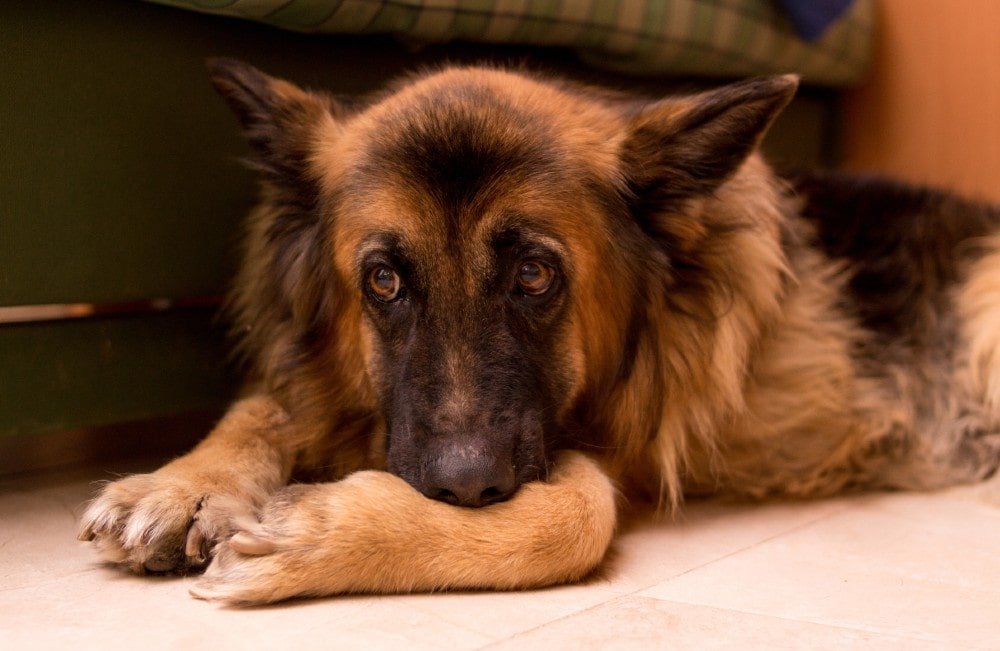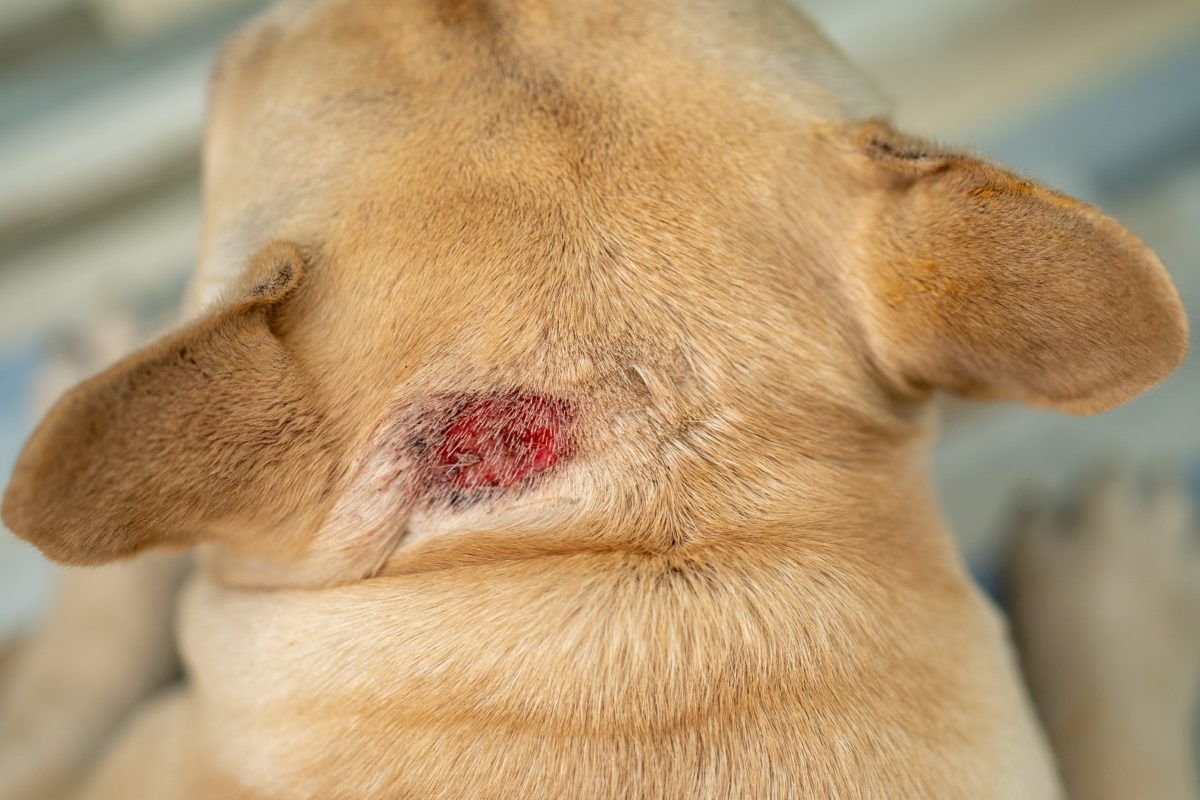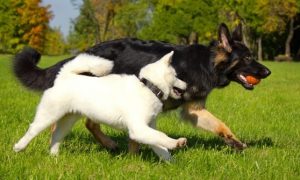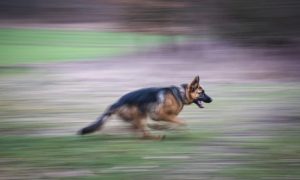Itchy Dog Relief
Do you have an itchy dog constantly chewing, biting, or scratching itself?
A dog with itchy skin, paws, or ears can be caused by a variety of underlying allergy conditions, including:
- Environmental allergies like trees, pollen, grass, etc.
- Contact allergies like bedding, flooring, etc.
- Food sensitivities to corn, wheat, chicken, etc.
- Skin parasites such as fleas
For long-term relief, it’s important to determine what is causing your dog’s reaction. In the meantime, let’s discuss how to manage your dog’s discomfort.
What are the Signs of an Itchy Dog?
The first signs of an itchy dog and the most obvious are excessive scratching, biting, chewing, and licking.
Other indicators are:
- Skin inflammation, also referred to as hot spots – caused by excessive chewing and biting
- Temperature above normal
- Dry coat
- Flaky skin – think dandruff
- Bald spots from biting and chewing
- Scratching or digging at ears
- Odor from ears
- Chewing or licking paws
- Redness between the pads of paws
Itchy Dog Treatment
Itching is a common problem in dogs and can escalate quickly, sometimes overnight.
A common scenario is that of owners sleeping through the night, going to work the following day, and returning home to a dog with hot spots, bald spots, or other accelerated indicators from above.
A trip to your veterinarian will result in treatment and medications for relief.
- Hot spots will be shaved
- Medicated shampoo may be recommended for skin issues
- Irritated ears will be flushed
- A change in diet may be discussed
- A prednisone or cortisone shot might be given for immediate relief
- A plastic cone may be necessary to prevent short-term chewing and licking
- Medication will be sent home with a treatment plan
Antibiotics will be necessary if your dog has open wounds. Prednisone is commonly prescribed to treat an itchy dog suffering from allergies, hives, and skin issues.
Prednisone is effective at curbing the itch but is not recommended for an extended period of time.
Prednisone is processed in the liver, and long-term usage can cause health issues such as ulcers, weight gain, muscle weakness, urinary tract infections, diabetes, and heart issues, to name a few.
Many dogs have allergy flares during the spring and summer months. Other dogs have food allergies, and pinpointing the exact ingredient can be a lengthy trial and error process.
If your dog has successfully been treated with prednisone, it may be tempting to call your vet and order a refill to provide your dog with itch relief.
What if you could substitute prednisone with a natural herbal steroid?
Itchy Dog Home Remedy – Licorice Root
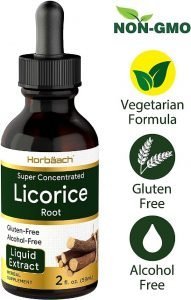
Shop Amazon
Licorice Root is a natural holistic steroid by Eastern Medicine and herbalists and has been used safely for thousands of years.
The licorice plant is a medicinal herb native to Asia, southern Europe, and parts of Africa.
The natural anti-inflammatory properties of Licorice Root is a chemical compound called Glycyrrhizin.
Licorice Root is safe for dogs and cats and can be beneficial for itchy dog issues and eliminate corticosteroids.
To clarify, this article is referring to Licorice Root, not any form of licorice candy.
Licorice Root can be purchased in capsules or tinctures and found in Natural Food Stores, Co-ops, and online.
Ingredients to Look for in Licorice Root
- Natural Human Grade Ingredients
- Alchohol-Free tincture
- Organic Herbs (Preferred)
Licorice Root Dosage for Dogs
Below are Dosage RECOMMENDATIONS
Tincture
- 12 to 20 drops of tincture per 20 pounds of body weight twice daily
Capsules by Weight
- 1-10 pounds: ½ capsule 1 to 3 times daily
- 10-20 pounds: ½ to 1 capsule 1 to 3 times daily
- 20-50 pounds: 1 to 2 capsules 2 to 3 times daily
- 50-100 pounds: 1 to 2 capsules 3 to 4 times daily
- Over 100 pounds: Human adult dosage – follow product instructions
Start with a low dose and monitor your dog to make sure there are no adverse effects. Adjust accordingly.
Locorice Root is to be used short-term.
**DO NOT** treat your dog with Locorice Root for more than two weeks at a time. Some sources recommend 7 to 10 days.
Locorice Root Warnings
Do not administer Locorice Root to your dog if they have any of the following conditions:
- Nausea or vomiting
- Pregnant or nursing
- Diabetes
- High blood pressure
- Low potassium
- Heart condition
Disclaimer: This article is informational and not medical advice.
Commission Disclosure – Articles on German Shepherd Country are for education or entertainment purposes. We hope you find the information helpful! We may earn a small commission (at no extra cost to you!) if you shop through links on this page.

